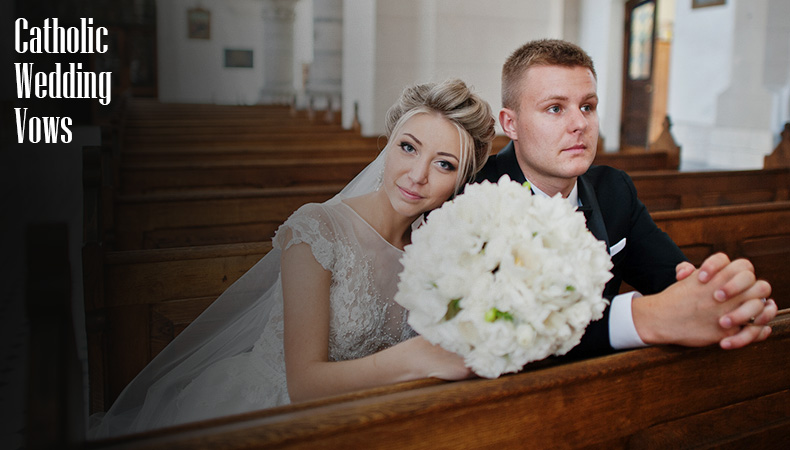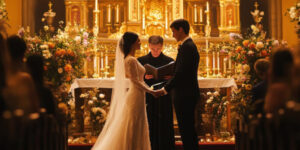The exchange of wedding vows is one of the most critical components of a Catholic wedding mass, as these declarations are what bond Catholic couples in holy matrimony. Wedding vows make the covenant that legally establishes their union. They are a vital element of the wedding ceremony.
The Catholic Church refers to the exchange of vows as consent, which is defined as the act of will by which a man and a woman offer themselves to each other and accept the gift of the other. The marriage will not be valid unless the consent of both parties is obtained.
If you’re engaged and are in the midst of wedding planning but have no idea what Catholic wedding vows should look like, continue reading.
Catholic wedding vows are typically preceded by the priest asking three questions:
“Have you come here, (Name) and (Name), to enter into Marriage without coercion, voluntarily, and wholeheartedly?”
“Are you prepared, as you walk the path of Marriage, to love and honor one another for the duration of your lives together?”
“Are you willing to accept children lovingly from God and raise them in accordance with Christ’s and His Church’s law?”
The bride and groom respond with the words “I have” or “I am.”
Consent Exchange
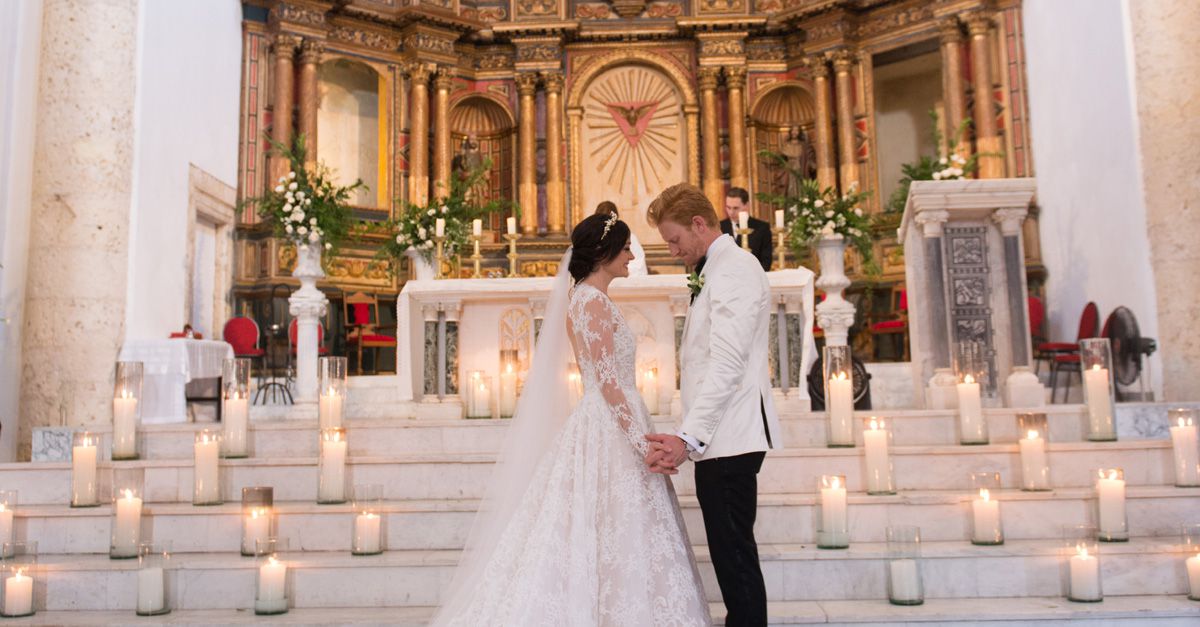
Following that, the exchange of vows takes place, followed by the exchange of rings. The exchange of Catholic wedding vows is referred to as Consent—marriage will not take place without these sacred words and solemn vows pronounced in the face of God.
The priest will ask you to put your right hands together and recite your Consent in front of God and his Church before the congregation.
Groom: I, (name), take you, (name), to be my wife. I promise to be true to you in good times and bad, sickness and health. I will love you and honor you all the days of my life.
Bride: I, (name), take you, (name), to be my husband. I promise to be faithful to you in good times and in bad, sickness and health, to love you, and to honor you all the days of my life.
In order to stress that your consent to be married is truly heartfelt, it is best if you memorize the words of consent. Making a point to memorize your spouse’s words of permission in the weeks and months leading up to your wedding is also an excellent religious practice that will assist you in focusing on the more profound significance of your marriage.
The Ring Blessing and Exchange
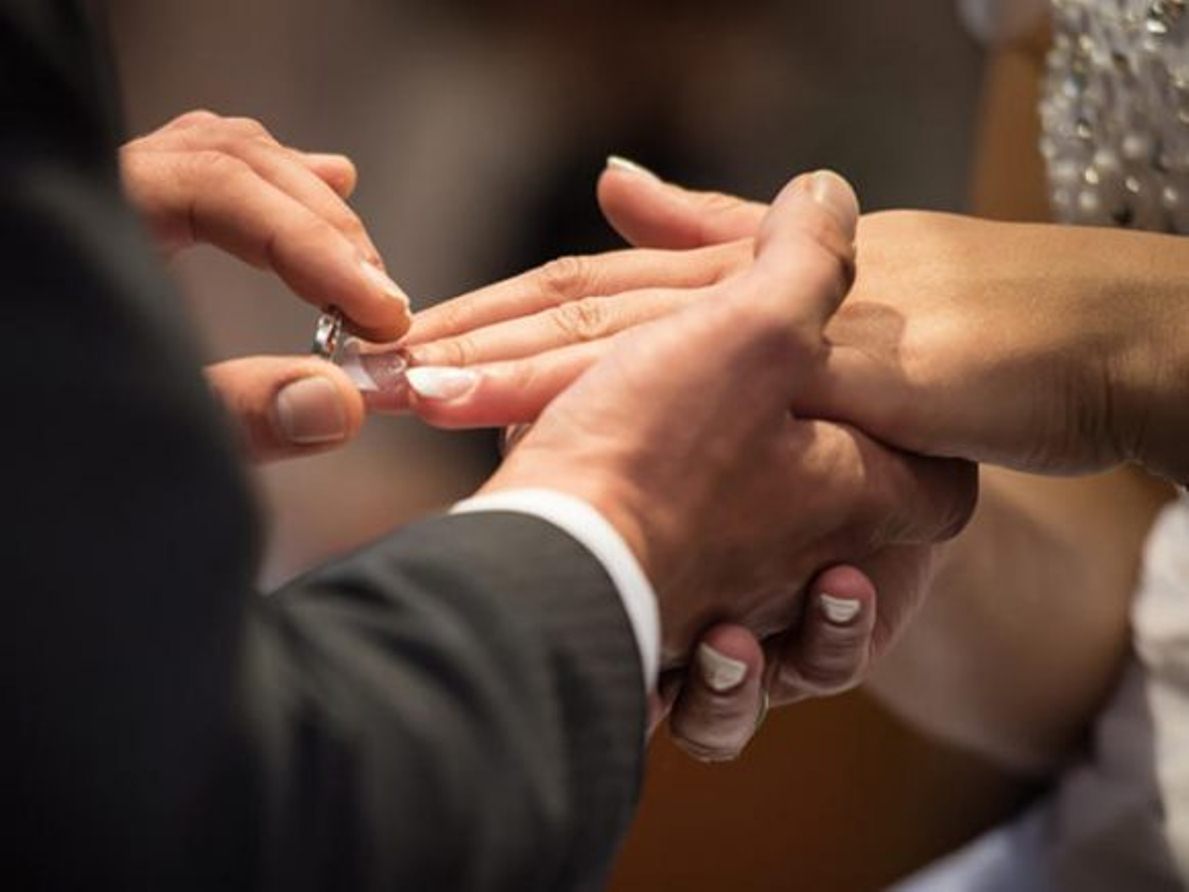
The officiant will acknowledge the couple’s decision to marry following this phase of the marriage ceremony. They will pray for God’s blessing on the marriage and bless the wedding rings. The following section of Catholic vows may be customized in any way desired by engaged couples.
The following are the most often used phrases exchanged by couples as they gift one another with rings:
Groom (while placing the wedding ring on his wife’s ring finger): In the name of the Father, and of the Son, and of the Holy Spirit. (Name), receive this ring as a sign/symbol of my love and fidelity.
Bride (while placing the wedding ring on her husband’s ring finger): In the name of the Father, and of the Son, and of the Holy Spirit. (Name), receive this ring as a sign/symbol of my love and fidelity.
Traditional Catholic Wedding Vows
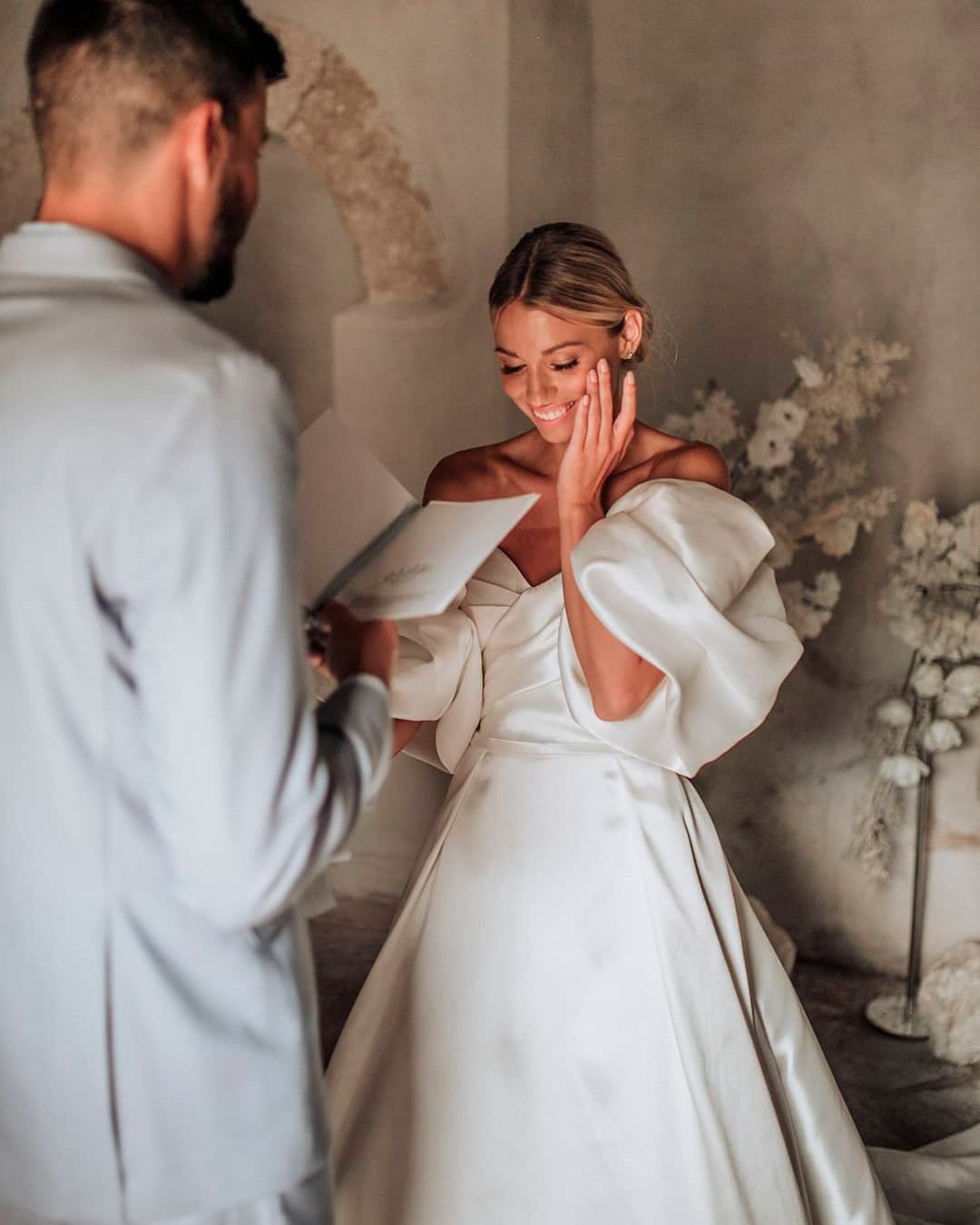
The Vatican has approved two versions of Catholic wedding vows for couples to exchange at a Catholic wedding ceremony. To-be-weds should consult with their priest to determine which consents are most appropriate for their nuptials.
“I, (name), accept you as my wife/husband. I swear to be faithful to you in good and bad times, in sickness and in health. I shall love and respect you forever all my life.”
“I, (name), accept you as my lawful wife/husband, to have and to keep, from this day forward, for better or for worse, richer or worse, in sickness and in health, till death do us part.”
Can I compose my own Catholic wedding vows?
While some couples may want to alter the pledges exchanged during a Catholic wedding liturgy very slightly, customization is generally discouraged.
Technically, engaged couples, priests, and others within the Church do not have the right to alter the Church’s approved wedding vows.
You may have attended Catholic weddings where the script was somewhat altered, even only by a word or two, although this practice is discouraged.
Catholic wedding vows are entrenched in history and endorsed by the Vatican; thus, it is highly recommended that you maintain your nuptials as close to those listed above.
Customized Wedding Vows

While your officiant will almost certainly require that you use one of the official Catholic wedding vows, there are additional ways to ensure that your wedding ceremony reflects you as a couple.
Collaborating with a family priest is an excellent approach to ensure that the sermon is unique to you.
Additionally, you can customize your Catholic wedding service by including significant readings, ethnic traditions, and music.
Additionally, you might prepare a few words to speak to your partner during your wedding reception if you wish to enhance the vows’ experience.
Happy Wedding… ☺ ☺

